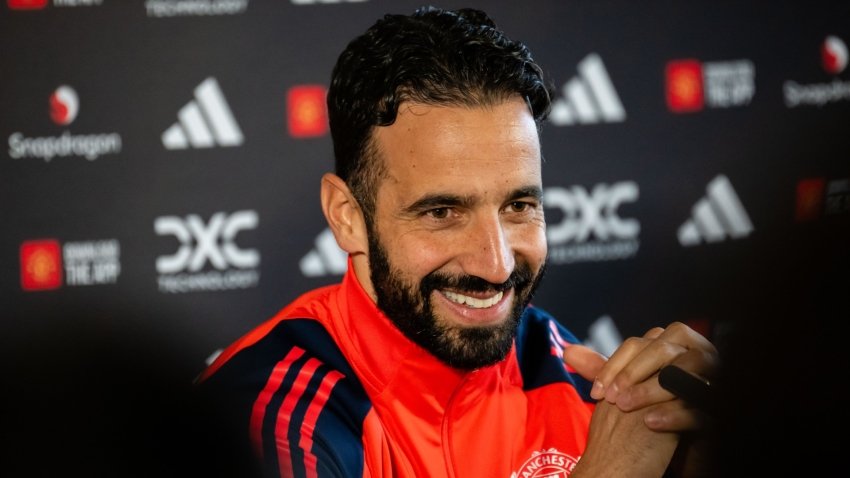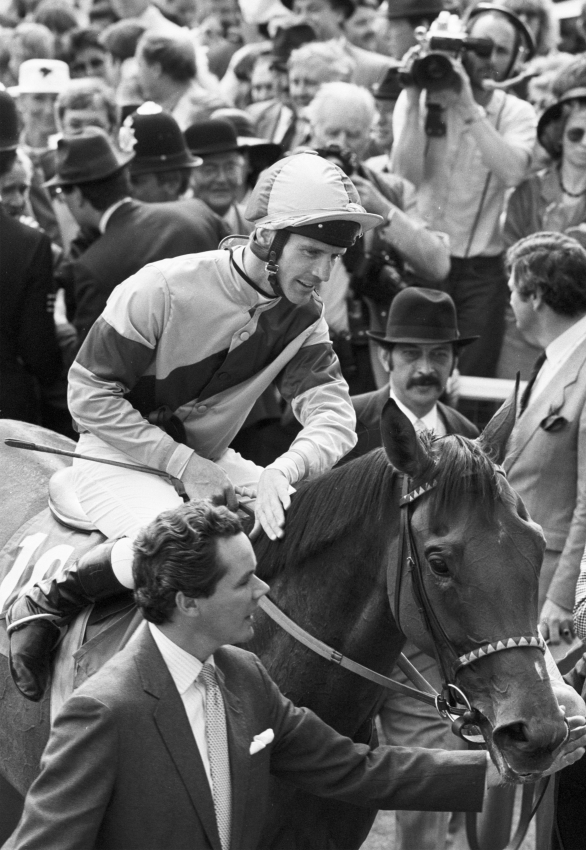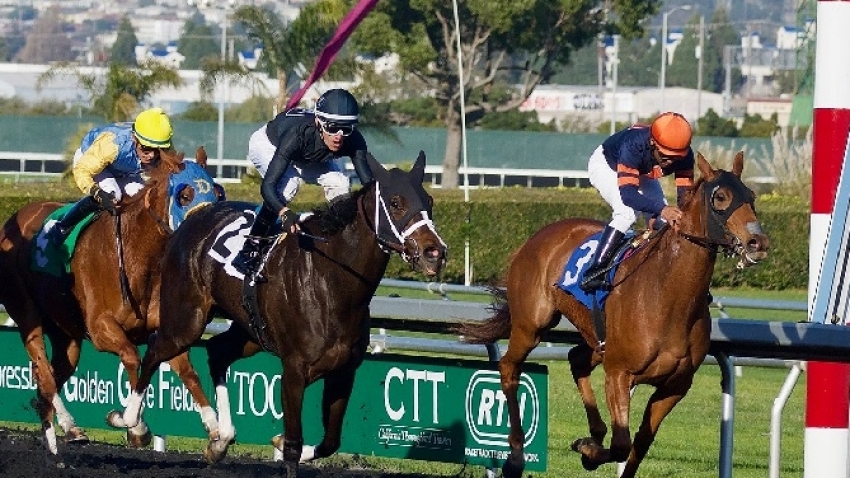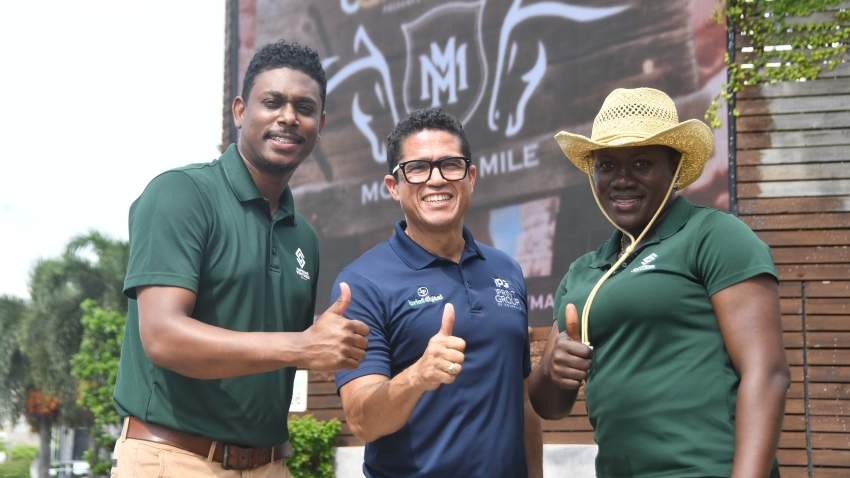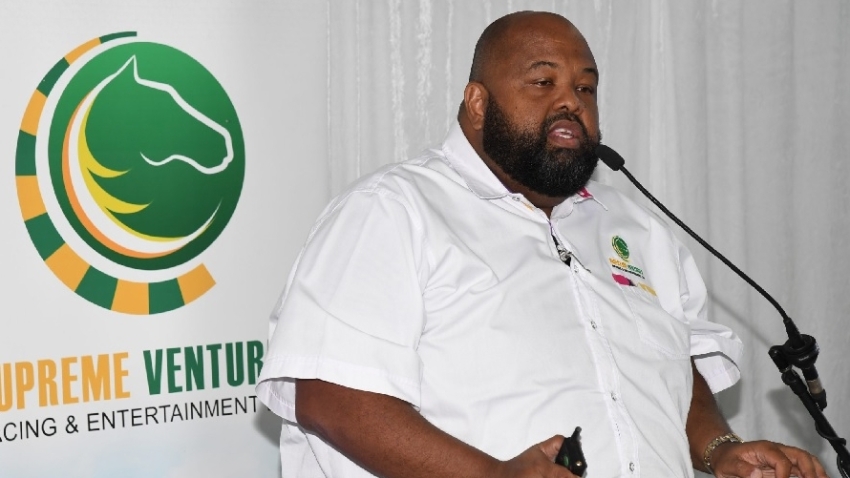There are two kinds of people in life – those blessed with happy happenstance and those for whom the opposite is true. Ben Hanbury puts himself firmly in the former camp.
Despite ending his training career prematurely for financial reasons in 2004, the passing of his beloved wife Moira four years later and his own ongoing health issues, Hanbury’s particular, unmistakable vernacular is most notable for the use of the word “lucky”, in every conceivable grammatical form.
And it provides an interesting dichotomy.
Replete with perma-tan and always the sharpest-dressed man on a racecourse, he was never one to follow the usual fashions or tried-and-tested ways of acquiring equine talent.
Hanbury will forever be remembered for his association with Midway Lady, winner of the 1000 Guineas and Oaks in 1986.
“She is a remarkable story,” said Hanbury, 77, who saddled some 900 winners in an illustrious career.
“I used to go to Venezuela to look for new owners, because when I was assistant to Bernard Van Cutsem he trained for Venezuelan owners.
“Michael Stoute and Barry Hills were plundering the English market for owners and I thought I’d go to Venezuela, America and Japan, anywhere to look for new owners.
“I made friends with a man whose father was a trainer out there and I said to the Venezuela Racing Association I was the champion trainer in England – and I’d hardly trained a winner!
“I kept in touch and he rang me up one day and he said, ‘I’ve seen a horse and I’ve had a dream – and in this dream she is going to become the champion filly of Europe’.
“I was desperate for horses, so we went to Keeneland and he showed me this filly. She was by Alleged, who was a hell of a sire, but she was very crooked and very ugly.
“The average for Alleged was 200,000 or 300,000 (dollars) and we picked her up for 42,000, which I thought was a lot of money. So we bought her with his dream intact.
“I got her home and she was very weak and a chronic box walker. She was coming on all right as a two-year-old and I went to Keeneland in July and I said to my apprentice, ‘you can ride her at Yarmouth, but I haven’t worked her’ – she’d just started strong cantering.
“I said, ‘look after her, I don’t care where you finish, but it might just change her mind and give her something to think about’.
“Anyway, she was second to Stoute’s best filly, Untold, and I was absolutely astounded.
“So after that race, I backed her for the Oaks at 100-1, which I thought was a terrible price because I’d never had a Classic runner, never mind a winner. I thought she should have been 500-1.
“After that she was never beaten!”
Midway Lady went on to race five times more, winning a Yarmouth maiden, the May Hill at Doncaster and the Prix Marcel Boussac under Lester Piggott, who retired for the first time at the end of 1985.
“I was never going to train her for the Guineas,” said Hanbury. “As she was a chronic box walker, I used to turn her out in the field.
“Then, in February, she fractured a splint bone, which was quite serious but not life-threatening.
“I said, ‘that’s it, we’ll be lucky to get her back for the Guineas’.
“Anyway, she recovered quite quickly and as any trainer will tell you, they are just like flowers. They suddenly come. This filly had to be box-rested and she got stronger and suddenly looked a million dollars.”
A racecourse gallop at Yarmouth convinced him to run in the Guineas and, with Ray Cochrane in the saddle as Piggott opted not to come out of retirement, the 10-1 chance powered up the stands rail at Newmarket to score by three-quarters of a length from Maysoon, with the 6-4 favourite Sonic Lady third.
On June 7, 1986, Midway Lady then justified 15-8 favouritism in the Oaks, winning by a length from Untold, with Maysoon third.
“Everyone looks from the outside and thinks things are rosy. But there are 365 days in a year – 350 of them are disappointing,” Hanbury pointed out.
“Most days, for everyone with horses, it’s depressing, so it’s great when you have a bit of luck.
“I didn’t have a party, I just went home and was physically ill. It was such a relief.”
However, during the race Midway Lady picked up a leg injury, which failed to respond to treatment, and in August that year she was retired.
“In my short training career, I was never lucky in so far that I had some good horses but every one of them got injured or never went on,” said Hanbury.
“She broke down in the Oaks. She never ran after June, but obviously if she was sound, she’d have won everything.”
Nineteen years later, Midway Lady’s daughter, Eswarah, similarly won the Oaks, a few months after Hanbury retired.
“Eswarah never ran as a two-year-old and had an injury – that’s why I really gave up,” he added.
“I walked into her box about October time and she had this injury, and I said, ‘that’s it!’.
“Eswarah was a very tricky, nervous filly. She went to Michael Jarvis and he trained her unbelievably well.
“I was absolutely delighted for Michael. He was a big friend, good luck to him. He was a lovely man. You can’t look back – ‘if’ is a great word, you know.”
Hanbury was just 58 when Diomed Stables was shuttered, with the keys passed on to Stuart Williams.
“You need a lot of luck. All my life I have been very lucky,” he added. “I don’t think I had much ability.
“I’d had a shocking year. When luck goes your way, I’d won every photograph, the ground was right, the draw was right.
“Then I had a five-year spell when it rained – I got the wrong draw, the jockey got shut in and I was having no luck, absolutely none. Everything went wrong.
“My accountant said, ‘you’ve lost £80,000 and you won’t last’. I had a valuable yard and unfortunately, when things go against you, you have got to have owners, you’ve got to have horses, you have got to have numbers. I was down to 30 horses.
“It takes quite a lot of guts to give up. Once you ring all your owners and say ‘I’m retiring’, that’s it. You can’t ring them up and say ‘I’m very sorry, I made a mistake’.
“I regretted retiring, but as it turned out, it was the best thing that ever happened financially.”
Anyone who is scorched by the fires of hardship – financial, physical or mental – can often feel grateful if blessed with a positive disposition.
To some, Hanbury may not seem particularly fortunate.
In his formative years, after working as a stable lad for Ryan Price, he ventured to Ireland. As a jockey, he had modest success, even partnering Cheltenham Gold Cup and Grand National winner L’Escargot to victory twice early in the horse’s career for Dan Moore.
Yet a terrible fall sidelined him for a year and fate took him on a different path.
“I came to Newmarket to get strong and I went to Bernard Van Cutsem, just to ride out and help him, and I saw there was much more money than being a bad professional jockey,” he said.
“That was 55 years ago and I never left Newmarket, never left my house. That was luck, complete luck.
“You need luck. Kala Dancer is another example. He got such a fright when Law Society bumped him just on the line, that he put his head out and that’s how he won the Dewhurst (1984).
“He only won by an inch. Every trainer will tell you, you need luck,” he added.
“Of course I regretted retiring. But as it turned out, I sold my yard and I had something to live on.
“I looked after the pictures at the Jockey Club Rooms in Newmarket for 16 years, but I’ve had cancer and just had a big heart operation. I’m feeling fit and I’m a million dollars, but not for doing any work.”
He is still content to do things in his own, unconventional way, however.
“I’m just gardening now. My doctor said to me, ‘no gardening for six weeks’. I waited about three days!” he laughed.
“I’m great, but I tell you what, I’ve been very, very lucky. I tell people so much is down to luck.
“I was very, very lucky to have an amazing wife. I was very lucky to meet her, lucky to have the career I had, lucky to have trained some good horses. I feel extremely lucky.”











